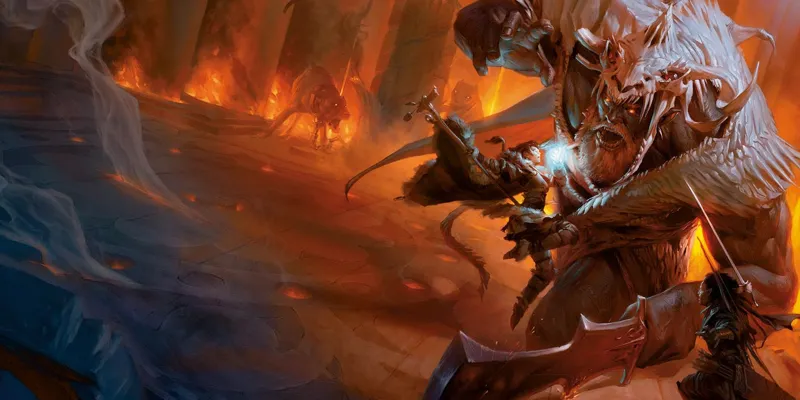A forthcoming substantial update is in the works for the fifth edition of Dungeons and Dragons. This update aims to formalize the various minor changes the system has undergone over the past decade. Moreover, it will implement significant alterations to address fan feedback.
The forthcoming update to D&D's rules will coincide with the release of the game's three core books. The most crucial of these, the Player's Handbook, is scheduled for launch in late 2024. Subsequently, the reimagined Dungeon Master's Guide will debut in late 2024, followed by the revised Monster Manual in early 2025. All three books will undergo notable modifications, which have been elucidated through OneD&D playtests, interviews, and statements at Wizards of the Coast's 2023 Creator Summit. Fans can glean insights into the forthcoming changes from recent sourcebooks and adventure modules.
What Awaits Fans in the 2024 Updated Player's Handbook
Assorted Minor Rule Adjustments
The upcoming PHB for D&D 5e is poised to introduce various tweaks. Recent playtests have confirmed multiple minor rule adjustments, including the reworking of the Exhaustion mechanic for better consistency. If the latest playtest materials hold true, the 2024 PHB will permit players to opt to fail saving throws voluntarily, introduce new actions like Study, Search, Magic, and Influence, introduce the Dazed condition, and more.
Bridging the Gap Between Martial and Caster Classes
Enthusiasts well-versed in 5e's design intricacies are likely familiar with the disparity between D&D's martial and caster classes. This dichotomy highlights the perception that martials (barbarians, fighters, monks, and rogues) possess significantly fewer capabilities than casters (bards, clerics, wizards, etc.), primarily due to their lack of spellcasting abilities. The 2024 PHB playtest materials have endeavored to bridge this gap, notably through the introduction of weapon masteries. These masteries grant martial characters additional bonuses when they engage in combat, such as area-of-effect damage, enemy manipulation, or disadvantage imposition.
With class overhauls come enhancements for several martial classes. Players have expressed acclaim for the revamped rogue, which, besides acquiring weapon masteries, can utilize sneak attack damage dice for debuffs by the fifth level. However, the standout improvement lies with the revised monk in D&D 2024. Historically considered one of 5e's weaker classes, the monk is finally set to receive the enhancements it merits. From more resource-efficient abilities to the capacity to replenish resources upon rolling initiative, along with enhanced utility from class features like Deflect Attack, the revamped monk could prove pivotal if it adheres to the outlined details in its UA.
Omission of Artificer
Jeremy Crawford, the lead rules designer at WOTC, has confirmed that the artificer will not feature among the core classes in the revised PHB. This exclusion may be perceived as a missed opportunity, particularly given the dearth of new classes introduced for D&D in recent years, with the artificer being the sole non-PHB class officially released for 5e. Nevertheless, enthusiasts can explore numerous third-party classes available on platforms like DMsguild and through independent publishers such as Ghostfire Games and MCDM.
Addressing Sensitivity Concerns
The 2024 PHB will undertake measures to rectify problematic elements within D&D, notably by transitioning from 'race' to 'species' and decoupling ability score bonuses from species. The fantastical humanoid entities players embody do not neatly align with the term 'race', and the narrative coding within their cultures, coupled with designating some as inherently 'evil', could be construed as colonialist. In addition to eliminating bioessentialist lore and mechanics, monks will witness the renaming of their Ki points to 'discipline points' to combat the exoticization of Asian cultures.

